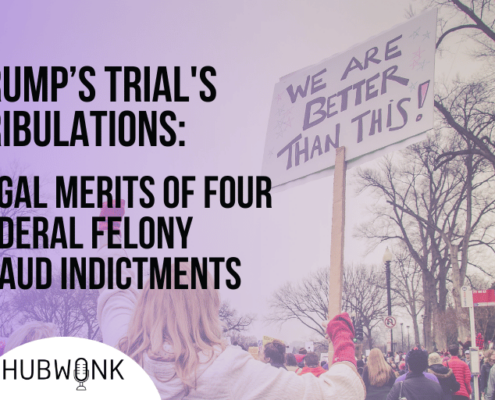
Trump’s Trial’s Tribulations: Legal Merits of Four Federal Felony Fraud Indictments
Joe Selvaggi talks with legal scholar and George Mason University professor Ilya Somin about the legal merits of the federal indictments against former President Donald Trump and what is likely to come next in the legal proceedings against him and other defendants in the cases involving the aftermath of the 2020 presidential election.

U.K. Cambridge’s Prof. David Abulafia on Oceans, Seas, & Global Trade
This week on The Learning Curve, Professor David Abulafia from Cambridge University discusses the many roles of the world’s oceans in human history and trade. He focuses on how the Pacific, Indian, and Atlantic oceans, along with the Mediterranean Sea, have spurred the rise of civilizations. He concludes with a reading from his book The Boundless Sea: A Human History of the Oceans.

Black Box Budget: Late, Loaded, and Lacking Transparency
Joe Selvaggi talks with Pioneer Institute’s Senior Fellow in Economic Opportunity Eileen McAnneny about the features and flaws of the recently passed 2024 Massachusetts state budget now waiting for Governor Healey’s approval.

Dr. Peter Wood on Diversity and Anger in America
This week on The Learning Curve, Dr. Peter Wood, president of the National Association of Scholars, discusses the invention of the modern concept of diversity, the history of U.S. Supreme Court rulings on the concepts of diversity and race in college admissions, and how a culture of anger seems to pervade American life.

Sabotaging Strategic Success: How Price Controls Could Imperil U.S. Pharma Industry
Joe Selvaggi talks with Pioneer Institute’s Director of Life Sciences Initiative Dr. Bill Smith about the policies that drove biopharmaceutical company from Europe to the U.S., and how proposed, similar price controls in President Biden’s Fair Prices Act could distort incentives away from innovation and threaten the success of a thriving and vital U.S. industry.

UConn’s Prof. Manisha Sinha on The Slave’s Cause: A History of Abolition
This week on The Learning Curve, UConn Professor Manisha Sinha discusses the influential figures and seminal events that created the abolitionist movement. She describes the legacy of the transatlantic slave trade, Harriet Tubman and the Underground Railroad, the passage of the Thirteenth Amendment, and other key moments in the fight to end slavery.
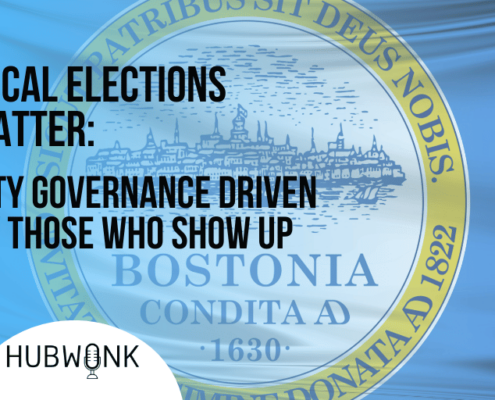
Local Elections Matter: City Governance Driven by Those Who Show Up
Joe Selvaggi talks with Suffolk County Assistant District Attorney and candidate for Boston City Council’s 8th District Montez Haywood about the city council’s role in local governance and the salient issues at stake in the July 25 special election.

Pulitzer Winner Tamara Payne on the Life and Legacy of Malcolm X
This week on The Learning Curve, guest cohosts Alisha Searcy and Mariam Memarsadeghi interview Tamara Payne, award-winning biographer, about Malcolm X. They delve into his early life, rise in the Nation of Islam, civil rights movement involvement, pilgrimage, assassination, and ongoing legacy debate. Ms. Payne concludes with a reading from her book.

Diagnosing Debilitating Debt: Are We Undertaxing or Overspending?
Joe Selvaggi talks with Cato Institute’s Director of Tax Policies, Dr. Adam Michell about the sources of recent record levels of deficits and debt to understand a policy path toward fiscal sustainability that is politically viable.

Johns Hopkins’ Dr. David Steiner on Teaching Wisdom in Schools
This week on The Learning Curve, guest cohosts Charlie Chieppo and Alisha Searcy join Dr. David Steiner for a wide-ranging discussion about the importance of education as a means of transmitting enduring wisdom to young people.
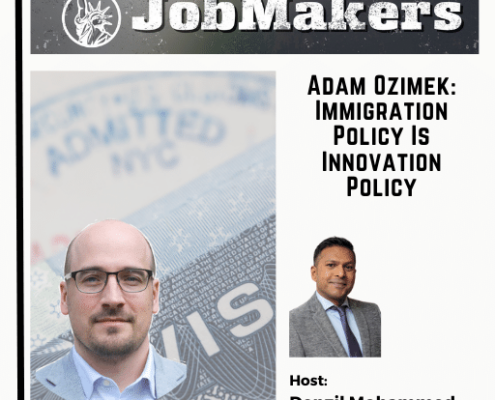
Adam Ozimek: Immigration Policy Is Innovation Policy
The United States is built on all kinds of immigrants with all kinds of skills and experiences. While politicians might have us believe immigration is a divisive issue, the fact is Americans across the political spectrum agree at least on this: High-skilled immigrants are good for the country, and we need more of them.
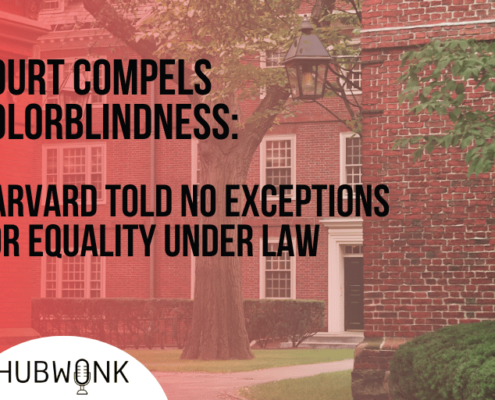
Court Compels Colorblindness: Harvard Told No Exceptions for Equality Under Law
Joe Selvaggi speaks with Thomas A. Berry of Cato Institute about the Supreme Court’s ruling in Students for Fair Admissions Inc. v. President & Fellows of Harvard College, its impact on affirmative action, and what comes next for colleges seeking to ensure diverse enrollments.

Pulitzer Winner Stacy Schiff on Samuel Adams & American Independence
This week for the Fourth of July, the Learning Curve interviews Pulitzer Prize-winning biographer Stacy Schiff, who explores the American revolutionary Samuel Adams. She discusses Adams’ background, religion, and formative intellectual development, including the influences that Greco-Roman history, the Bible, and Enlightenment thinkers had upon his life and political thought.

Pioneer Study: Every Student Succeeds Act Not Meeting Needs of All Students
The most recent reauthorization of the Elementary and Secondary Education Act makes some progress toward fulfilling the mandate that public school districts provide wide-ranging academic and educational supports to students who attend nonpublic schools, but there is more to be done.

Cara and Gerard on Their Time with The Learning Curve
This week on The Learning Curve, Cara Candal and Gerard Robinson close out their time as long-time cohosts of the podcast by sharing highlights and memories from over the last several years. They reflect upon the state of education reform, the growth of school choice, parental empowerment, the impact of the Great Books, and the wisdom of many well-known and influential guests.
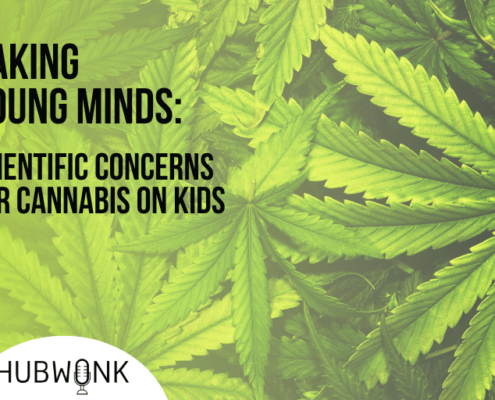
Baking Young Minds: Scientific Concerns for Cannabis on Kids
Joe Selvaggi talks with professor of psychiatry Dr. Ryan Sultan about the findings of his recently released study on the effects of cannabis on the mental health of American adolescents. Dr. Sultan’s work shows a substantial correlation between cannabis use and negative mental health outcomes.
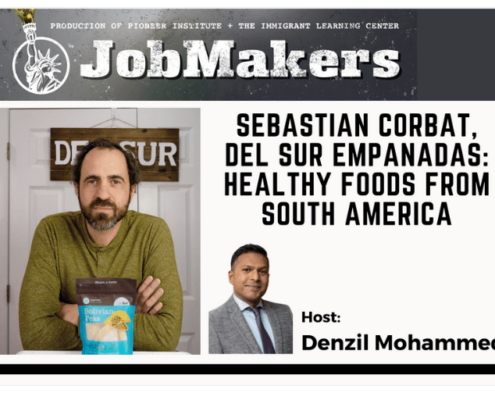
Sebastian Corbat Brings Us Healthy Foods ‘From the South’
Immigrants move for many reasons, and sometimes it can be a matter of life or death if they don’t uproot. Sebastian Corbat came to the U.S. for life-saving treatment, and post-op therapy gave him both a new lease on life and a business idea: We should all have access to healthy, organic and tasty foods.
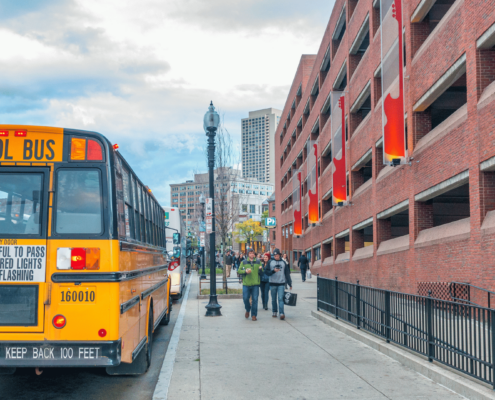
Study: Update Finds Boston Public Schools Making Slow, Uneven Progress
The Boston Public Schools (BPS) are experiencing some positive change but have a long way to go to streamline critical processes, improve school accountability, and create a realistic, school-centered budget, according to a new study from Pioneer Institute.

Becket Fund’s Eric Rassbach on Religious Liberty & American Schooling
Eric Rassbach of the Becket Fund for Religious Liberty discusses school choice and religious freedom, competing legal philosophies and views of the U.S. Constitution, and why issues pertaining to religion and schools remain so divisive at the K-12 level.
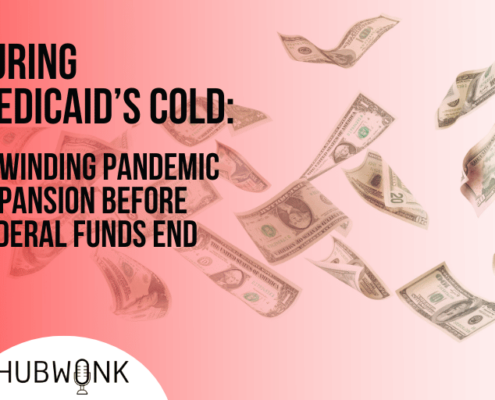
Curing Medicaid’s Cold: Unwinding Pandemic Expansion Before Federal Funds End
Joe Selvaggi talks with healthcare policy expert Dr. Brian Blase about Medicaid expansion during the COVID-19 healthcare emergency and how states can efficiently reexamine eligibility criteria so as to protect the vulnerable before federal support expires.

PRI’s Lance Izumi on Charter Schools & School Choice
Lance Izumi of the Pacific Research Institute discusses K-12 education reform, declining test scores, COVID-related learning loss, and the growth of education bureaucracy. He reflects on charter schools, school choice, and how U.S. history and civics should be taught.
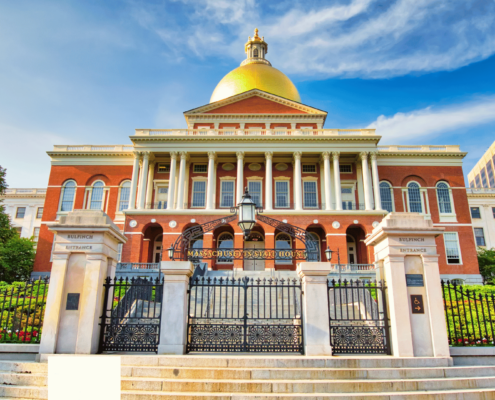
Senate Tax Package Misses the Mark on Competitiveness
The Senate tax package, S.2397, is heavy on provisions that reduce the tax burden for certain taxpayers, thereby helping those that qualify for the expanded credits and deductions. The bill, however, is light on provisions that will improve the Commonwealth’s competitiveness.
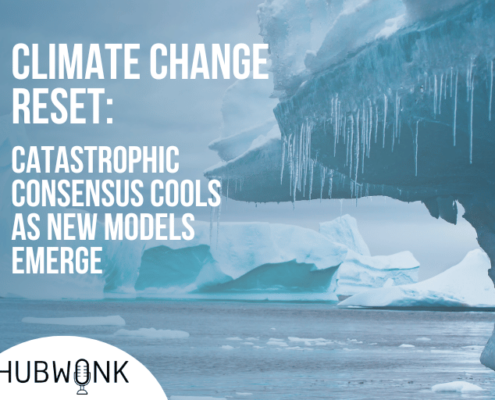
Climate Change Reset: Catastrophic Consensus Cools As New Models Emerge
Joe Selvaggi talks with climate expert Dr. Judith Curry about the insights contained in her newly released book, Climate Uncertainty and Risk: Rethinking our Response, in which she tracks the evolution of climate science from model development, to political weapon, to an emerging view that the best response to a changing climate is to build resiliency.

Remove roadblocks for charter schools
Worcester, Brockton, Fall River, New Bedford, and other Gateway Cities in Massachusetts have large waiting lists for charter schools plus room to expand under state caps. What's needed are ways to curb obstructionist behavior that is blocking that expansion.

Study: Immigrant Entrepreneurs Benefit N.E. Economy, Despite Facing Obstacles to Growth
BOSTON – Immigrants in Massachusetts and New England are more likely to be self-employed, but the businesses they own tend to be in different industries than those owned by the U.S. born, according to a new study published by Pioneer Institute.

McGill Prof. Marc Raboy on Guglielmo Marconi & Global Communications
This week on The Learning Curve, McGill University Professor Marc Raboy, author of Marconi: The Man Who Networked the World, explores how twentieth-century Italian communications pioneer Guglielmo Marconi made his world-changing discoveries.

Dodging Debt Default: Who Won Congressional Cage Match Compromise
Joe Selvaggi talks with CATO Institute budget expert Chris Edwards about the details of the newly passed Fiscal Responsibility Act, which avoids crossing the debt ceiling in exchange for slowing spending growth.

Donald Graham on The Washington Post, Media, and Educating Immigrants
This week on The Learning Curve, Donald Graham, Chairman of Graham Holdings Company, discusses the history of The Washington Post, his views on changing media in America, and his work in higher education reform and philanthropy on behalf of immigrant youth.

Tilting Offshore Windmills: Speaking Truth to Ratepayers
Joe Selvaggi talks with energy economist Dr. Jonathan Lesser about the chasm between the promises and realities of offshore wind projects, including the likely increased costs passed to electricity consumers and taxpayers.

Columbia Law’s Philip Hamburger on Church, State, & School Choice
This week on The Learning Curve, noted constitutional law professor Philip Hamburger of Columbia Law School discusses the legal basis for private and religious school choice, and how American constitutionalism supports parental choice in education.
